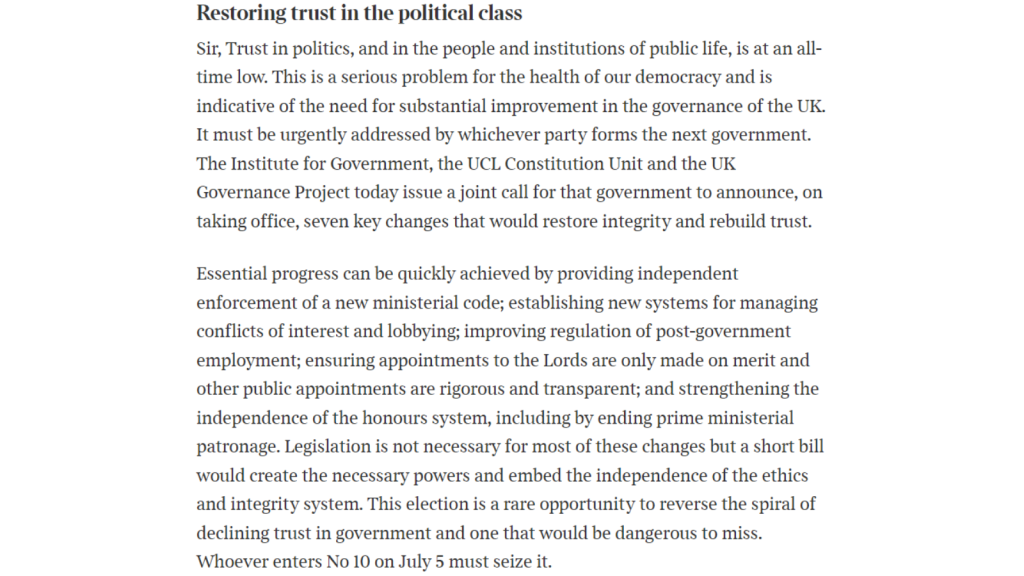The Constitution Unit today publishes a joint statement with the Institute for Government and UK Governance Project proposing seven steps for the new government to restore trust in the regulation of ethics in public life. This is summarised in a letter to The Times, signed by the leaders of these three groups and numerous others.

Trust in politics in the UK, and in the people and institutions of public life, is at an all-time low. Recent reports from the Institute for Government, Constitution Unit and UK Governance Project have identified important, practical reforms to the current system for setting out, monitoring and enforcing standards in public life.
A new parliament offers the opportunity for a renewal of the standards which protect our democracy. This document sets out key priorities, all of which can be easily implemented straightaway.
As soon as possible after the general election, to demonstrate clearly that a page has been turned, the Prime Minister should make a statement to parliament setting out his priorities for ethics and integrity in public life, including committing to:
- Publish, promote and provide independent enforcement of a new Ministerial Code designed to guide the ethical conduct of ministers.
- Enable ministers, senior public officials and special advisers to identify, manage and report conflicts of interest, by establishing a fair and robust new system.
- Ensure lobbying of ministers, senior public officials and special advisers is transparent, by building a new clear, coherent and consistent system.
- Regulate the post-government employment and appointments of ministers, civil servants and special advisers with a more rigorously enforced, fair and transparent system.
- Reform the appointments process to ensure that appointments to the House of Lords are made on merit, with the purpose of enhancing the work of parliament.
- Ensure public appointments are rigorous, delivered through an independent, transparent and timely process.
- Enhance the standing of the honours system by strengthening its independence and ending the practice of prime ministerial personal patronage.



